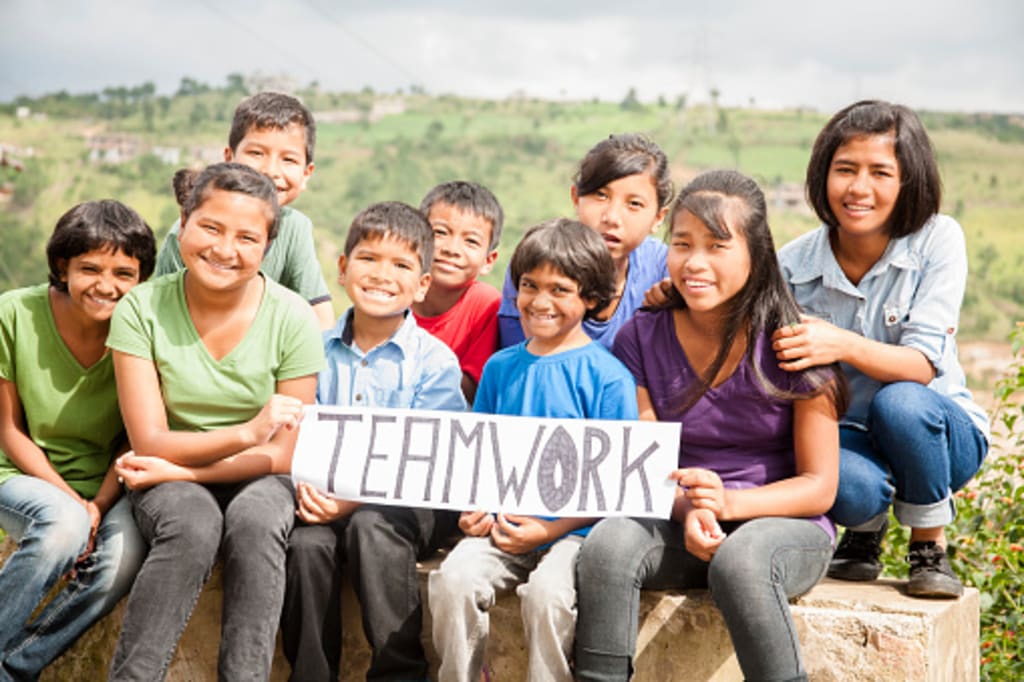Changemakers, Please Stand Up
The stories of ordinary people who do extraordinary things tell us that it takes just a little to bring about a positive change in society. The question is, will you be a part of this change? Will you be the next changemaker?

Close to a month ago, I was traveling on a day train from Coimbatore to Chennai. For the longest time, I seem to have cultivated the habit of standing by the edge of the train doors and gazing at the scenes flashing by. That day was no different. As the winds knotted my messy bun ever more, and my eyes danced in a blur of fields, a middle-aged lady tapped on my shoulder.
“Step aside please,” she said.
Then, she leaned over the door and threw what seemed like a handful of garbage out in the open. It was baffling.
Diligently following her was another lady who stepped out to do the same. This time, I stepped in.
“Do you see that container below the sink?” I asked, pointing to an iron structure behind her.
“Yes,” she said.
“There’s a reason why it’s been kept there. It’s called a garbage can,” I reminded her.
She did eventually flip it in but what are the odds that she and people like her won’t repeat it at another time, in another place when no one dares confront them?
A couple of days ago, another such instance occurred. A friend and I were engaged in a deep conversation about our grand plans for the future, when he said, “I want to become a politician.”
It wasn’t something new, for even as a backpacking school kid, he would claim proudly that he wants to become the Prime Minister of the country someday.
“So, what happened?” I asked.
“Well, I did run in the College elections. I even earned a post but I didn’t like what I saw. Backstabbing, bias, humiliation, disrespect; you know the drill,” he mumbled.
While these two incidents were a mere case in point, it set me thinking; in an age where our exposure has been far more than that of previous generations, where we often have heated debates about social, economic and political issues impacting our societies every so often, where we take pride in being tagged the ‘intellects’, why do we still stop short of taking action against such issues plaguing practically every limb and bone of the society? Why do we not initiate that change?
Why are WE not the CHANGEMAKERS?
When I posed this question to my peers, there was ever more skepticism. That’s ideal thinking, some said. Some others believed that one person or ten people standing up for a cause would probably create a hullabaloo for a week or a month, and eventually die down. And to my amusement, some even said, why will people listen to me when I’m as much a common man as they are?
I pondered over it. I even pondered over the people I have met and heard of over the course of my life; ordinary people, who have made an extraordinary difference to the lives of people around them. Then, I penned down their stories in the hope that to those who read this, it will serve as an inspiration.
#1: Fighting for Transpeople rights
My meeting with Swetha Sudhakar happened by chance. A friend I’d known for quite some time reached out to me one day to sell a calendar which featured inspirational stories of trans people who’ve broken the norm and built a respectful life for themselves.
“How do you know them?” was my first question. Then, she introduced me to an organisation called Born2Win Social Welfare Trust, which Swetha had built single-handedly, from scratch.
This is her story.
Since her childhood, Swetha knew that there was something different about her. Though she studied in a boys' school, the way she walked, the way she gestured–it all seemed quite different from her peers. She was even victim to some of the choicest abuses by her fellow classmates; words which referred to her as a person of an alien gender. On the home front too, things were no different. Her family was shunned from the society because her sister married outside their caste, and she was afraid to confront her fears to her single mother.
Life moved on though, for Swetha, as she pursued higher education in correspondence, and worked part time at a booth which fetched her just enough to manage a living. There were several trials and tribulations, no doubt. There were even days when she would resign to the confines of her home, doing the daily chores.
One day, I spotted a school senior who teased me at school, walking along with a set of transgender women. Upon questioning, the senior admitted that she knew long ago of her identity but kept it discreet lest she be teased by her peers, too. That was also when I discovered terms such as transgender, MSM (men who have sex with men), lesbians, homosexuals, bisexuals and more.
Later, Swetha joined a community-based organisation which worked towards scaling HIV Intervention Programs for the MSM communities. This opportunity, she says, created a turning point in her life.
In the eight years that I worked there, I evolved from being a trainer and facilitator, to becoming a program manager, a councillor and a documenter. I even networked with several writers, advocates and notable people in the mainstream. When my seniors noticed the progress I was making within the organisation, when I began questioning some decisions, they felt threatened and showed me the door.
One can say, it was these very setbacks which made her what she is today; the founder of a thriving social welfare organisation called Born2Win, which simply strives to empower anyone in need of financial aid, or seeks education or employment support. The board comprises 12 members from the trans community, and it doesn’t take charity. Instead, it raises funds by creating and selling products, or hosting exhibitions, the proceeds from which are channeled towards social causes.
Today, the organisation has helped several trans people find employment in mainstream companies, provided financial support to educate young girls, and raised funds for Cancer treatments for the underprivileged.
#2: The Cleanest Village in India
You heard that right. When I was first told about this village, I couldn’t help but dig deeper to understand how an entire village managed to drive cleanliness and hygiene into its system when us Urban folk couldn’t implement it even in our own streets. And amazed I was.
Located 90 km from Shillong, along the India-Bangladesh border, Mawlynnong is a village housing 500 people and guided by a village Head. The place shot to fame in 2003 when it was recognised as the ‘Cleanest Village in Asia’ by Discover India magazine. In fact, when the country’s present Prime Minister introduced the Swachh Bharat Abhiyan (The Clean India Campaign), he called upon the people to take this village as a role model.
So, what worked for them? The village and its people adopt several measures to keep the streets, their homes and surroundings clean, while also retaining its natural habitat. For example, at a very young age the children are taught to pick up their brooms and cone-shaped baskets every single day and walk around the village to remove any rubble, dry leaves or dust that may have collected over the course of the previous day – all this before they head to school. Every house, too, places a bamboo basket right outside its doors to collect waste.
All this waste is then segregated into biodegradable and non-biodegradable material, and the former is buried under the soil to be used as fertiliser, while the latter is taken in vehicles to a far off location, and burnt. In fact, the village even has gardeners who maintain the plants and flowers on footpaths.
What worked for this little village in Meghalaya seems to be a habit of hygiene and cleanliness cultivated in its people at a very early age. But, when did it all begin?
It likely stemmed from an outbreak of cholera more than 130 years ago, and cleanliness was encouraged to control its spread, says a BBC Travel article dated June 2016.
While the the village has been put on the global map due to the recognition it earned a decade ago, its people go about life just as any of us do, albeit with a sense of social concern.
This is a not-so-common story of a traffic policeman in India, who came to be known as the ‘Supercop’.
Road fatalities have been a cause for concern in major cities in India for quite some time now. In fact, according to UN-Habitat & WHO’s Global Health Report (April 2016), the number of people killed per lakh population in Chennai is the second highest among major cities. It was around this time, too, that road safety campaigns saw its peak; there was an increased awareness around wearing helmets while driving, following traffic rules and maintaining speed limits.
While the State went all out to create safety standards, one unnoticed cop did something simple yet revolutionary every single day for the last 22 years; that too, in one of the busiest roads in the city.
Through his more than two decade long service, he maintained a 0% accident rate in his locale.
How did he do that? One, was the pure love he had for a job most people would deem grueling. “I consider myself a teacher,” he admits candidly. To catch the attention of the motorists, he would use props like hand gloves and a whistle, and even indulge in an occasional spirited waltz to keep his ‘customers’ going. But, one that cracks even the most obstinate among them is his effervescent smile. “Every day, the people who pass through my signal should have a safe start; go to their offices safely and return home safely. That’s the prayer with which I start my day,” he says.
Kumar, the man in question came to be a hit among his folk not because he was a keyboard warrior, a revolutionary or a millennial intellect. He was just an ordinary, straightforward cop who loved what he does.
While these eventually made news, albeit for a brief period, they prove that a thought, an action and a disciplined approach is all it takes to bring about a change in the society. We needn’t be the Mahatma Gandhi, the Nelson Mandela or the Che Guevara to stand up for what we believe in, to voice what is just and unjust, what is humanitarian. Sometimes, we just need to set our devices, our inhibitions and even a bit of pride aside to create an impact in one life, in one incident. And, that could trigger many more like you or me to become a changemaker in someone’s life.






Comments
There are no comments for this story
Be the first to respond and start the conversation.